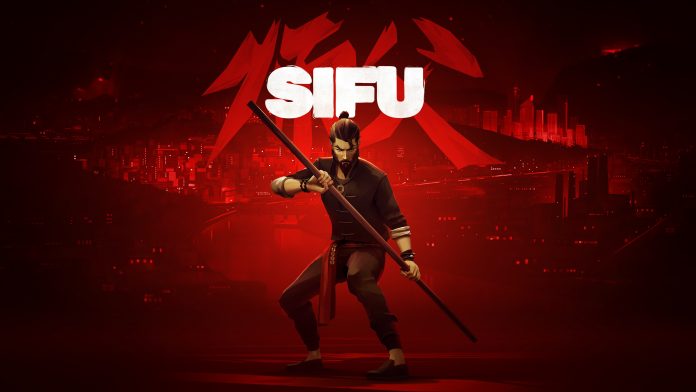Sloclap’s martial arts filled game, Sifu, is ready to spin-kick into your console. Featuring impressive gameplay and oodles of challenge, there’s a lot to love.
Imagine the most intense martial arts fight. Something straight out of the movies, where the protagonist is a flurry of motion among a group of enemies who are skilled in their own ways. As the pace of the battle increases, someone grabs a large bottle, hurling it directly at the hero, threatening to finally overwhelm him. Rather than make contact, however, the hero snatches out of the air and immediately turns it against his enemies.
This is Sifu. Rather than watching this unfold, however, you’re the one in control. It’s hard to describe the pure thrill of mastering your techniques to the point where you can make such a scenario happen, but the entirety of the game is geared towards making you feel like the ultimate badass.
Sifu has been one of my most anticipated games for a while now. My hype only increased after getting some hands-on time with a demo late last year. As such, when the full game dropped in my lap, I immediately dove in…and immediately got my ass handed to me.
Sifu
Developed By: Sloclap
Platforms: PlayStation 4|5, PC
Reviewed On: PlayStation 5
Release Date: February 8, 2022
That’s partly the point, however! In fact, getting your ass handed to you by the game’s various enemies is a major factor in how you progress, upgrade, and move through the overall story. The focus of the gameplay puts a literal emphasis on learning through failure, which also plays into the overall story being told. It’s a mechanic that could have gotten old/repetitive, but manages to find balance and retain the fun. Let’s break it down a bit more…
Let me preface this review a little bit. By and large, my overall thoughts on Sifu haven’t changed much from my hands-on preview the other month. The main difference is getting a more complete look at the story, as well as having more polished gameplay (which was already great from that demo build). As such, there are a few things I’m not really going to cover again, so if it seems like I skipped over something, I’ll simply direct you HERE.
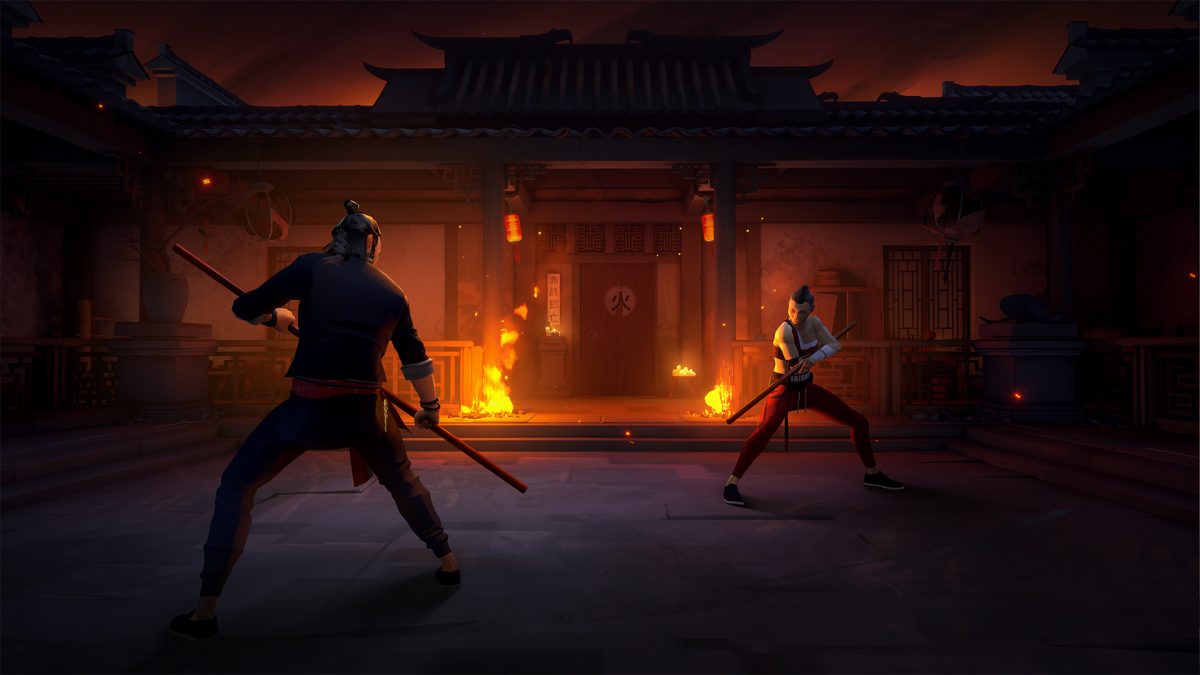
Classic Revenge Thriller
In just about every way, Sifu is presented as a giant homage/love letter to classic Kung Fu films. This includes the basics of the plot: revenge. Seriously, nothing screams “kung fu movie” more than a story about a martial artist out for revenge against the people who killed their father and/or master.
This is pretty much the entire setup for Sifu. These events happen within the first few minutes so I don’t really consider them a spoiler. The game’s prologue, which serves as a quick and dirty tutorial, actually puts you in the role of disgruntled former student who’s turned evil (another iconic trope) and infiltrates the old Sifu’s dojo, the Wuguan.
Feeling slighted/left out of the loop, you’re there to forcibly take some ancient knowledge that’s been held back from you. In doing so, you strike down the old man only to discover a lone witness in the form of a hiding child (the Sifu’s son). Leaving no witnesses behind, one of the evil henchman go about killing the child.
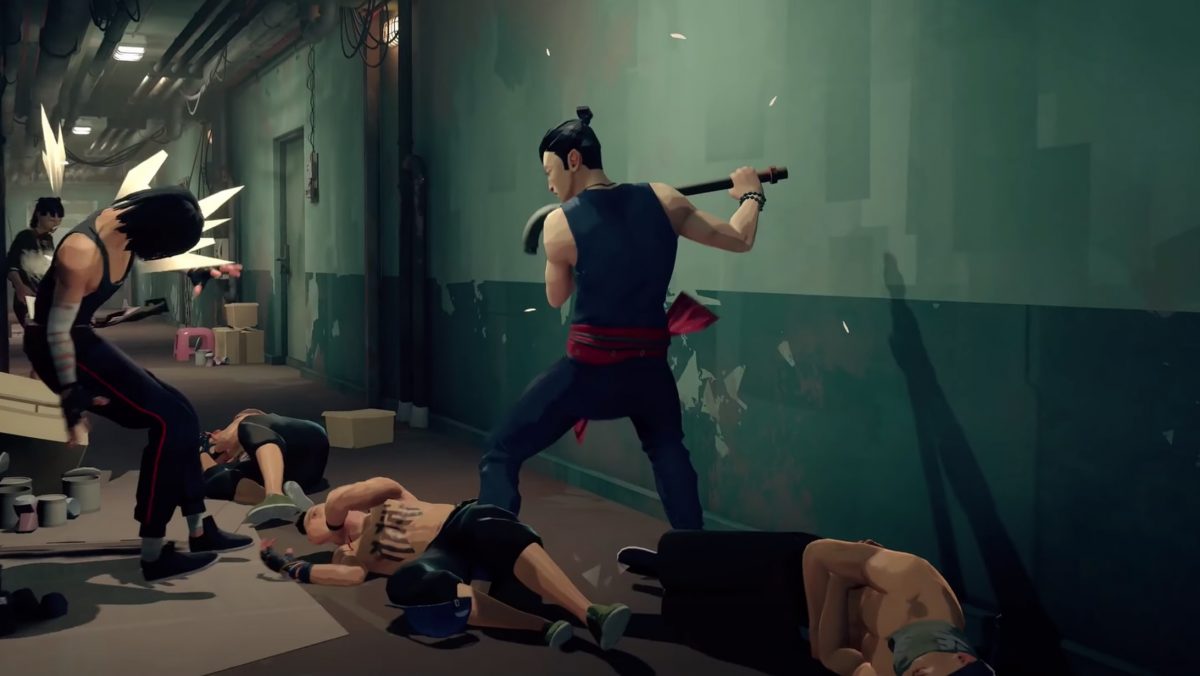
Somehow, however, the child wakes up. The story then picks up as you take on the role of the surviving child, who spends the rest of his life putting together everything he needs to exact revenge on all those involved in killing his father/master. What follows is an incredible title/opening credits sequence that serves as another homage to old Kung Fu films, a nifty way to age-up the main player character, all while serving as another basic tutorial to get your acquainted with the basics of combat.
Little sequences like this, the small details, comprise a big part of what makes this game so fun. It seems silly to sit here and lavish praise on a title sequence, but within just a few short minutes, the game tells you exactly the type of fun you’re about to embark on. It sets the tone and expectations in a fun way.
As you imagine, the rest of the story (which I won’t spoil here) details the efforts of the primary character hunting down all the people involved in his dad’s murder, eventually working his way up to the man in charge. Along the way you get more details on the how/why of certain things took place, and ultimately touch upon the themes related to revenge and being able to let go.
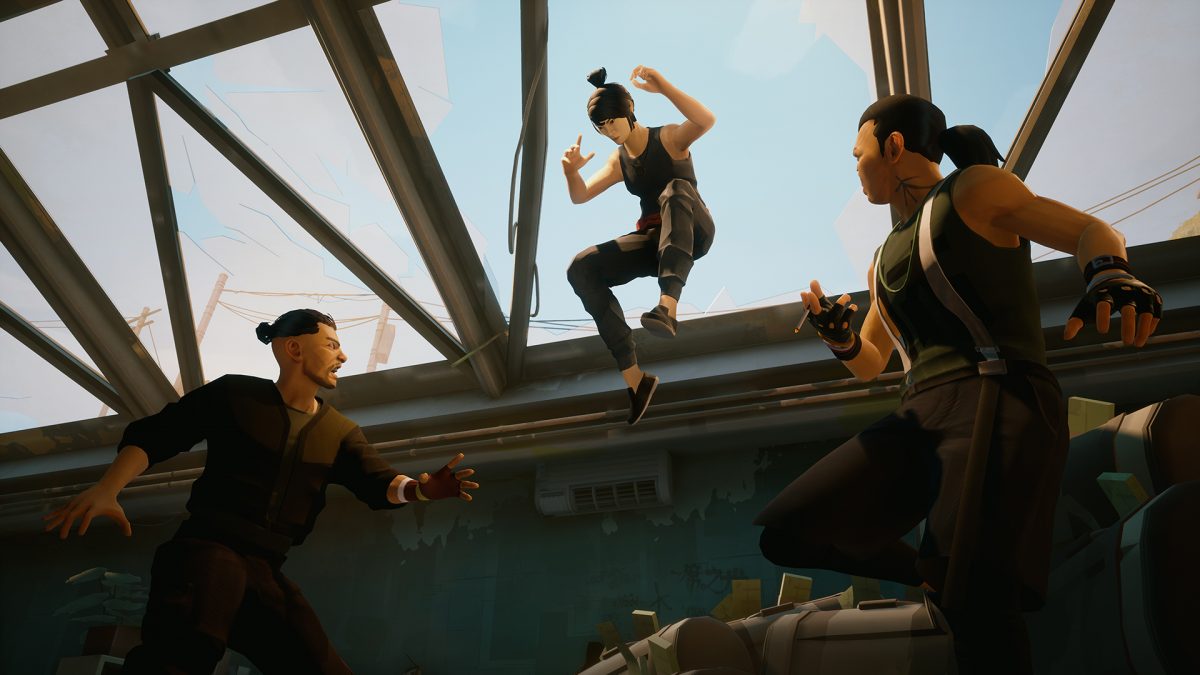
Try, Try Again
Getting to all that story, however, can take a bit of effort. Sifu does little to hold your hand, actively encouraging you to practice and learn the many techniques they introduce throughout the game. There is a practice area built into the game (accessed via your returns to the Wuguan dojo) which I would strongly encourage you to visit early on in your journey, but the primary way of honing your skills, come via the missions themselves.
Diving into a chapter puts you in various locations across a modern location in China, which you will proceed to beat the living snot out of everyone you encounter (they’re all bad guys, it’s okay). This isn’t your typical beat ’em up game, however, and running into a situation—even against the most basic of enemy types—is a recipe for disaster. While your martial prowess is exceptional, you’re far from superhuman, and you certainly “feel” the impact of every blow you fail to block/parry.
You’re going to die…a lot. As I mentioned, dying is actually a major component of the gameplay. I covered this quite a bit in my preview, but dying is not the end of your journey. Thanks to a magical talisman (the one which saved your life as the child at the beginning), you are able to be resurrected, allowing you to jump back into the fight where you went down.
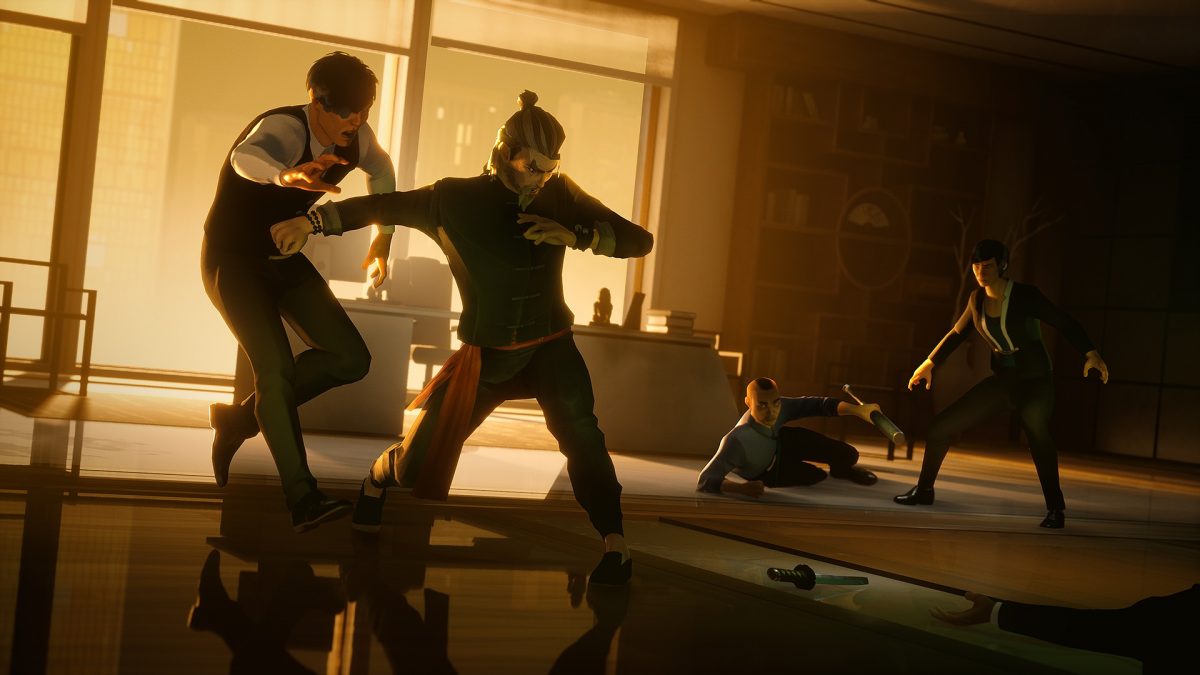
This power comes at a cost, for every time you use it, you come back older. Time is a flat line and you’re unable to de-age, though there are some ways to slow down/mitigate the aging process as you play (which I’ll talk about more in a bit). Ultimately, however, there will come a point where you simply cannot age anymore and experience a more final death.
At this point, you must restart. There are checkpoints upon completely whole chapters, so you aren’t forced to the VERY beginning, but again, you cannot get younger. So if you started the second level at age 67 (which would pretty much leave you with one life left), every time you die, you’ll go back to that age instead of starting off as a youngster again. You can replay chapters, however, to get a better age to start off with on a chapter.
The death screen serves another important purpose, however, beyond your revival. It’s about the only point (aside from the sparsely thrown about shrines) where you can spend the experience points you’ve gained. Doing so allows you to unlock new bonuses/techniques to expand your ass-kicking repertoire.
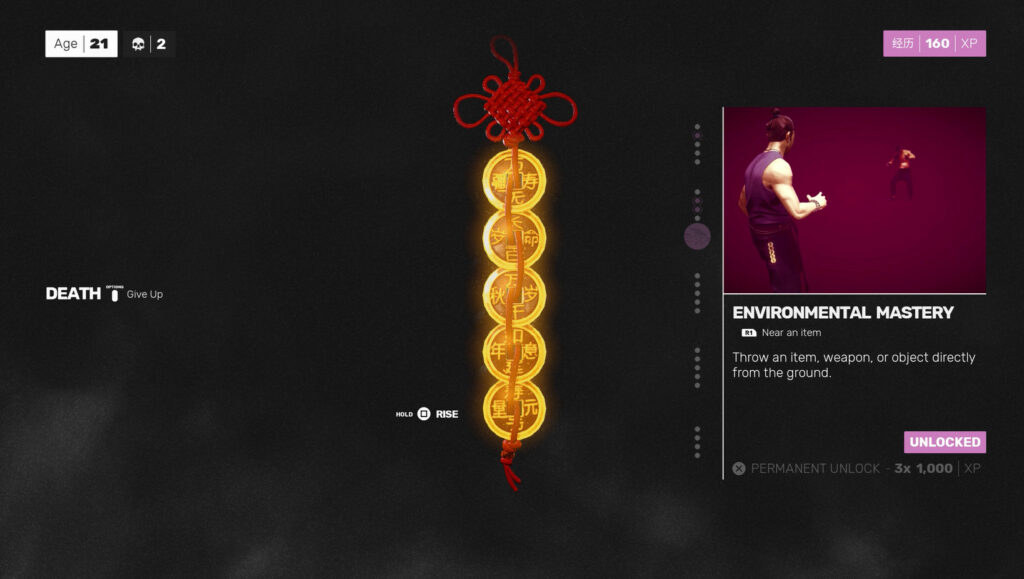
Beating the Grind
All this repetition feels like it could easily get old fast. Thankfully, Sifu manages to dodge this pitfall through some solid level design and simple tricks. Namely, it’s just so much damn fun that it’s hard to feel grumpy about replaying segments multiple times. The fight mechanics are so fluid and fun to watch, that even voluntarily replaying levels for experience points didn’t feel like the normal grind.
The upgrades you choose requires a bit more thought and care than you think. Here’s the thing, when you hit your final death and forced to restart, you will LOSE the techniques you’ve unlocked. Don’t get frustrated, though, as there are ways to permanently unlock your techniques, which essentially boils down to using the same amount of XP to unlock the skill a required amount of times. Thankfully this counter doesn’t reset at death, so you can begin your perma-unlocking and carry it over as needed.
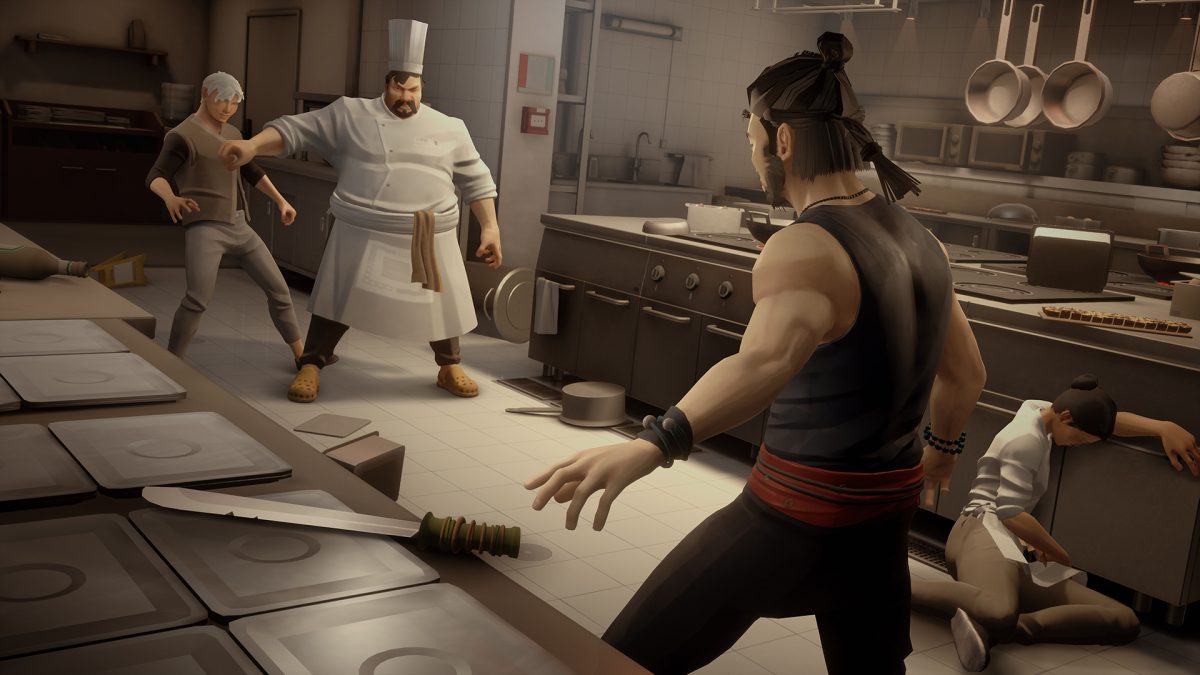
I didn’t quite grasp this idea in my first playthrough (I got barely to the boss in the first chapter before having a complete death) and was spending my XP all willy-nilly on a variety of things that ultimately left me. Once I understood the process, I was much more discerning in the techniques I spent XP on, selecting things that would specifically help me through certain segments while balancing the cost so I could permanently unlock them quickly.
This aspect added another, surprising, layer of depth to the gameplay. It fits in line perfectly with the action aspect, as you’re forced to think your way through the fights you engage in. Like I said, you can’t just button mash in this game. While the action is fast and furious, you’re often better off taking your time, thinking about your approach and techniques before the first punch is ever thrown.

Perhaps a Little Hand-Holding? Please
Much as I loved Sifu, there are some niggling issues that hold it back and could impact your fun. The most obvious thing is the difficulty. There’s no learning curve, so much as a vertical drop. While this makes mastering moves and finding optimal ways to defeat enemies super satisfying, there’s plenty of frustration as well. I get it, with a Souls-like approach, the difficulty is a key part of the game experience. There are moments, however, where the difficulty spikes and just feels mean.
Bosses are a particular nuisance, oftentimes feeling well above and beyond all the work you went through in a chapter to get to them. Take the very first chapter, for example. After a bit of XP grinding and unlocking the moves I wanted permanently, I got to the point where I could get through the entire level without a single death.
Then I’d get to the boss, “the Gardener.” No matter how much I learned, or the bonuses I unlocked, a severe ass-whipping always ensued. I’d start the encounter with no deaths and in my 20s, but would leave somewhere in my 50s. Weird difficulty spikes like this pop up periodically and getting through them feels less like a matter of your skill than total luck.
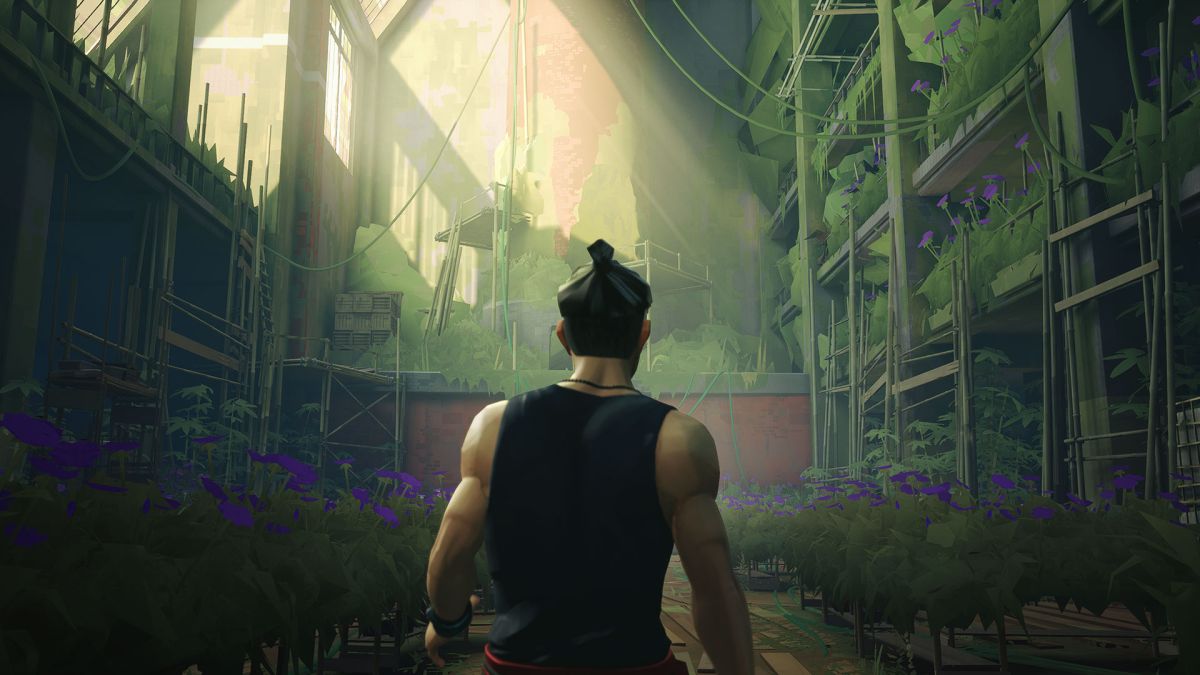
Granted, in the time since I first started playing, the devs released an update that balanced out that first boss a bit. Truthfully, I haven’t been able to spend much time with the game myself since then (I’ve been taking care of sick kids), but from I can gather from fellow reviewers, there are still some punishing spikes in there.
More than that, however, the biggest problem I have with Sifu is how little it actually explains things. By its design, the game refuses to hold players’ hands throughout the experience, forcing you to learn through trial and error. There are some very basic mechanics, however, that I shouldn’t have had to figure out on my own.
As I said, there’s no way to reverse your age, but you can slow down how fast you increase your age. It’s all tied to how many deaths you have. There’s a “death counter” to keep track of. The amount of deaths you have, is how many years you age upon revival (If you’re 30 with five deaths, you’ll come back at 35). Defeating certain enemies, however, allows you to knock down your death count. Hell, you can even get back to the point where it shows zero deaths, meaning a revival will only age you up a single year.
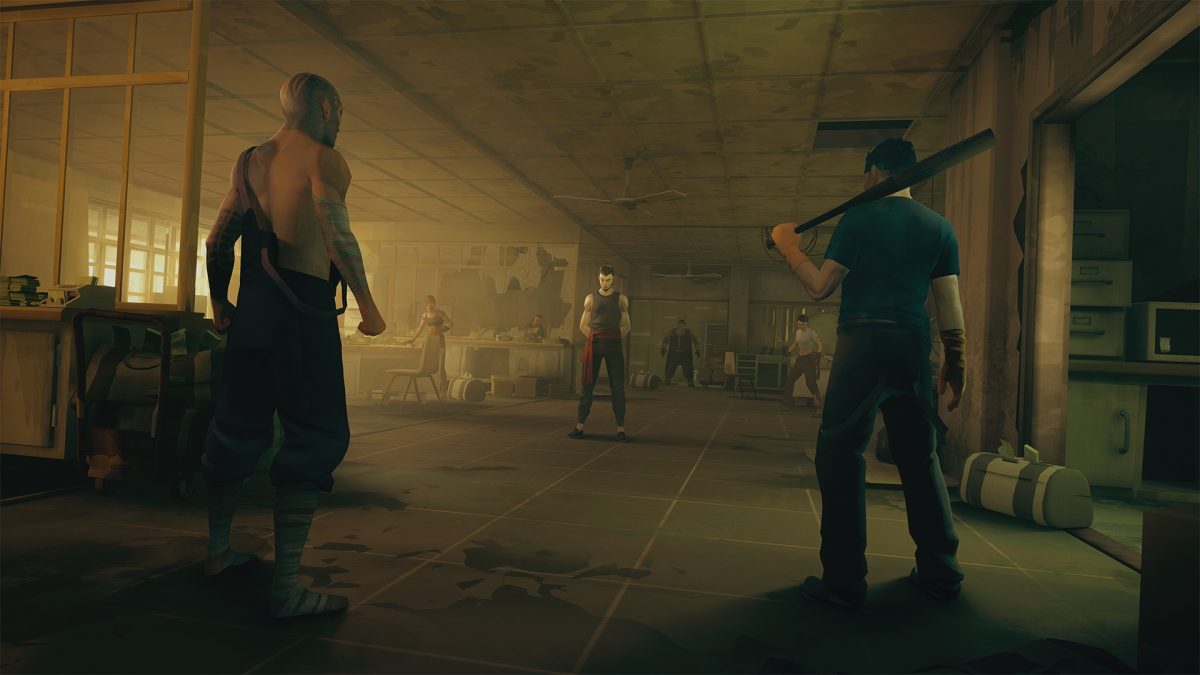
It’s a cool system/mechanic that plays into the larger strategy…but it NEVER tells you about this. Everything I explained above, I had to figure out on my own. I essentially broke down the math going on because I was looking for a rhyme or reason to the various ages I was getting when I died.
As a key element to the game’s MAIN mechanic, it feels like something that should have been explicitly explained at some point. Upon realizing this, it changed up many of my overall strategies.
Minor things too, like shrines refilling your health even if you don’t use it for bonuses/upgrades, are left for you to figure out on your own. The game is hard enough, but withholding some of this key information feels like an attempt to manufacture even more difficulty just because.

